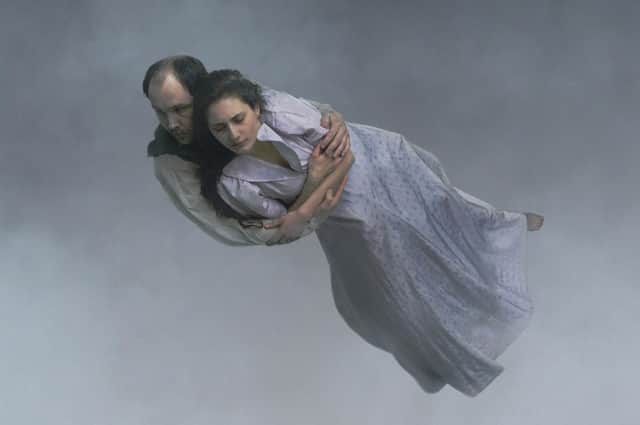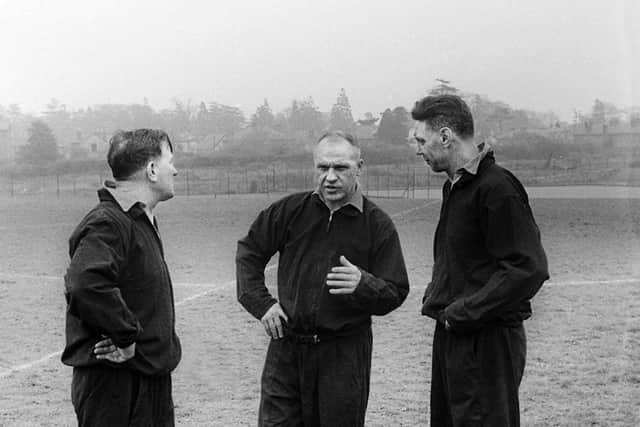Film reviews: About Endlessness | The Three Kings | Love Child | Train to Busan presents: Peninsula | Luxor


About Endlessness (12A) ****
The Three Kings (PG) ****
Love Child (12A) ****
Train to Busan presents: Peninsula (15) ***
Luxor (12A) **
The latest and very likely last film from singular Swedish filmmaker Roy Andersson, About Endlessness is another collection of sad, sweet, somewhat absurd vignettes featuring lost souls – and the occasional historical tyrant – confronting the unceasing chaos of the universe. That this chaos is rendered in the most banal fashion possible is part of the gag – and also intrinsic to Andersson’s creative process. As detailed in Fred Scott’s recent documentary Being a Human Person, each scene is composed with such precision and control he’s all but eliminated the chance of external factors influencing what happens in front of the camera – and yet the simple-seeming compositions in the resulting film belie the complex, somewhat precarious behind-the-scenes machinations necessary to make them work. This adds to the film’s enigmatic quality, though if you’re not already attuned to Andersson’s sensibility it can also make it seem a little insular and alienating. Indeed, in its own way, About Endlessness, with its oddball discussions about thermodynamics and nameless characters, can be as puzzling Tenet – though at 75 minutes, it is a good deal shorter. That in itself feels like a sly joke, an acknowledgement of the way life seems to stretch on and on until all of a sudden it doesn’t – something emphasised by the film’s omniscient narrator presenting each character’s moment of crisis, joy or despair in the same affectless style, whether it’s a significant event in history or something as minor as taking pleasure in a glass of champagne. What seems important in the moment, in other words, will eventually be flattened into insignificance by the onward march of time. That Andersson has chosen to bring his career to a close not with a bang but with an entropic whimper makes this a perfectly droll swansong.
Even as a football agnostic, it’s hard not to get swept up in the romance of the beautiful game as depicted in The Three Kings, Jonny Owen’s affectionate and thoughtful documentary about Matt Busby, Bill Shankly and Jock Stein, the Scottish managerial triumvirate that reshaped British football and brought it into the modern era. Though their individual club triumphs at Manchester United (Busby), Liverpool (Shankly) and Celtic (Stein, who also went on to manage Scotland) are the stuff of legend, what’s fascinating here is the way the film puts these men in the context of the times and shows how their shared backgrounds facilitated a camaraderie and professional respect that seemed to enhance their respective careers and achievements even as they chased the same goals. By sheer force of Shankly’s personality (he’s likened at one point to James Cagney), his story can have a tendency to dominate, but it’s Stein’s lesser-told life story that becomes the most moving, his death on the night of Scotland’s 1985 World Cup qualifier against Wales becoming a poignant reminder of the way these men gave their lives to the sport they loved.


Advertisement
Hide AdLike a non-fiction spin on an Asghar Farhadi film, Danish director Eva Mulvad’s extraordinary documentary Love Child offers an intimate look at an Iranian couple, Leila and Sahand, as they escape the terrible strictures of their homeland in an effort to be together and build a better life for their young son, Mani. The result of an affair they’ve managed to keep secret for several years, Mani is unaware that Sahand, whom he knows as “Uncle”, is really his father, which further complicates an already precarious relationship, the truth of which puts school teacher Leila – who’s escaping an abusive marriage – at risk of being stoned to death, and Sahand, also leaving a marriage and a complicated past, at risk of execution. Picking up their story in 2012, the film begins with them not knowing if they’ll live or die as they make a choice to flee Tehran to seek asylum in Istanbul. What follows over the next five years is no less fraught, as the complications of trying to hold a family together while effectively stateless take their toll. And yet what emerges is a thoroughly engrossing portrait of resilience and hope (especially from Leila) as personal issues, local complications and global political shifts repeatedly challenge their simple desire to have what so many others take for granted.
A follow-up to 2016’s South Korean zombie hit Train to Busan, Peninsula takes place four years after the events of the first film. With the country now sealed off and any survivors left to fend for themselves while the rest of the world moves on, it’s hard to ignore irony of this set-up in 2020 given South Korea’s ability to actually contain Covid-19. But it’s also a reminder that zombie apocalypse movies never go out of date for a reason. There’s certainly a perverse kind of fun to be had in seeing how this one imagines a collapsed society rebuilding itself according to its basest instincts. In this respect, it owes more to various Mad Max films than the zombies-on-a-train purity of its predecessor, but returning director Yeon Sang-ho pulls everything off with a degree of B-movie panache that’s very entertaining.
As a war zone doctor trying to get over the psychic scars caused by her job, Andrea Riseborough does some deft work in Luxor. Sadly, the elliptically structured film, named for the Egyptian city in which it’s set, lacks the artistic chops to pull off the story it’s trying to tell.
About Endlessness is available on Curzon Home Cinema, The Three Kings is available on digital platforms from 16 November, Love Child and Luxor are available to stream on digital platforms and in virtual cinemas via modernfilms.com, Train to Busan presents: Peninsula is on limited cinematic release now and will be released digitally from 30 November


A message from the Editor:
Thank you for reading this story on our website. While I have your attention, I also have an important request to make of you.
The dramatic events of 2020 are having a major impact on many of our advertisers - and consequently the revenue we receive. We are now more reliant than ever on you taking out a digital subscription to support our journalism.
To subscribe to scotsman.com and enjoy unlimited access to Scottish news and information online and on our app, visit https://www.scotsman.com/subscriptions
Joy Yates, Editorial Director